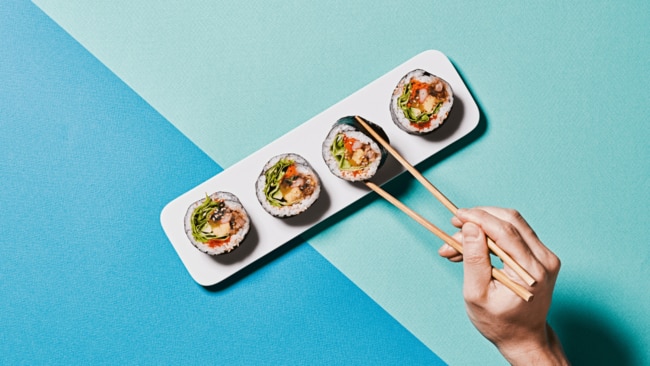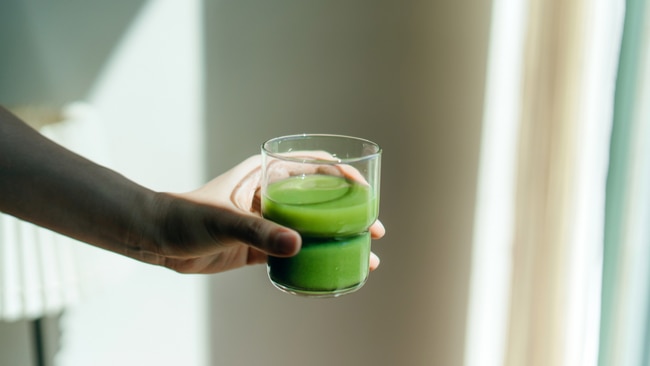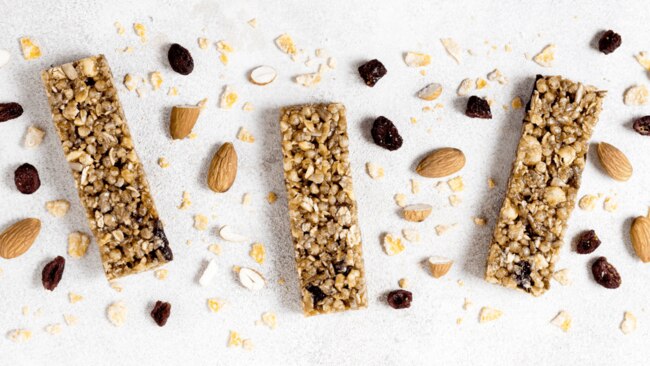6 ‘healthy’ foods that are actually bad for you, according to a dietitian
Apologies in advance for #3

Lifestyle
Don't miss out on the headlines from Lifestyle. Followed categories will be added to My News.
Don't be fooled by the 'sugar-free' and 'low-fat' labels plastered all over your favourite healthy snacks, warns dietitian Susie Burrell.
Chances are if you are reading this article, you are pretty committed to health and wellbeing. You would likely consider yourself a ‘healthy’ eater; choosing wholegrains where you can, and ticking the box on your daily vegetable intake.
You also likely seek out ‘healthy’ snacks and indulge in processed, fast food on rare occasions only. It may then come as a surprise to hear that there are a number of foods marketed and positioned as healthier options in supermarkets, but on closer inspection, it may be revealed that a lot of these health foods are not as ‘healthy’ as they may appear.
#1. Fruit yoghurt
There are many different varieties of yoghurt available in supermarkets, and you need a pair of glasses to differentiate the tiny labels, but what will be revealed on closer examination is that there are still a lot of fruit-based yoghurts that contain added sugars – up to 20g of added sugars in fact, or more than four teaspoons per individual tub.
While dairy-based yoghurt is a protein and calcium-rich snack, be sure to scan your ingredient lists and label and make sure you are grabbing one that clearly states ‘no added sugar’, especially if you are buying fruit yoghurt for kids.
Like what you see? Sign up to our bodyandsoul.com.au newsletter for more stories like this.
#2. Juice
There are few packaged foods that look as healthy as a brightly coloured juice, and whilst some of these juices do contain vegetables, and be marketed as fruit and vegetable-based juice, the reality is that upwards of 98 per cent of juices in supermarkets are fruit-based, adding much concentrated sugar to the diet.
Unlike fresh fruit which offers the bulk of the fruit itself and dietary fibre, fruit juice is a concentrated source of energy, with it taking more than a couple of pieces of whole fruit to make a juice.
While it is believed that fruit juice is a healthier option than soft drinks, when it comes to a propensity to gain weight, fruit juices are considered just as poor a choice nutritionally. For this reason, if you love juice, seek out one of the handful of largely vegetable-based options that are lower in calories and sugars.

#3. Sushi
I know you are feeling shocked considering that your favourite sushi lunch could be anything other than exceptionally healthy, but keep in mind that when most of us think of sushi, we think of a lot of white rice served with a little fish, fried chicken and mayo plus a truckload of soy sauce.
Here you have a lunch of very little good quality protein, loads of refined white carbs and a whole lot of salt. Now, sashimi, seaweed salad and edamame are healthy ‘sushi’ options, but you are kidding yourself if you think a typical California roll is ‘healthy’.
#4. Low sugar bars
This is a controversial one, as not only is there a growing range of ‘lower sugar’ and ‘No Added Sugar’ foods in the health food section of supermarkets, but they are also extremely popular.
While lower sugar products across the board may be low in sugars, and calories, a quick scan of the ingredient list will likely reveal a heavily processed food that is packed full of preservatives, additives and refined ingredients to help make a product that has few whole food ingredients taste good.
As a general rule of thumb, the longer the ingredient list, the less ‘healthy’ a food is for you, so keep that in mind when looking at ‘low sugar’ options, and keep in mind that lower sugar varieties of chocolate, cakes and snack bars, are often much higher in fat.

#5. Dips
With their bright, vibrant colours and vegetable bases, you can be forgiven for thinking that dunking your favourite crackers or vegetables in a pot of dip is anything but a ‘healthy’ snack.
A closer look at the ingredient lists of the majority of dips available in supermarkets will reveal that in general, you are eating a pot of vegetable oil, or cream with a splash of vegetables thrown in for a dash of colour.
With an average of 20-30 per cent fat, little protein or dietary fibre, most dips, with the exception of a good quality hummus, tzatziki and an occasional beetroot-based option, you are likely dipping your vege sticks into a pot of fat, hence the advice to dip lightly, if at all.
#6. Non-meat ‘meat’
Whether it is a plant-based alternative to mince, chicken or even prawns (yes, really), while your plant-based ‘meat’ may be lower in fat and saturated fat than its red meat counterpart, it does not automatically qualify as being ‘healthy’.
It takes a lot of ingredients to make something that is not animal protein to taste and look like it is, and common processed ingredients including vegetable oil, thickeners, starches, colours and flavours frequent the generally long ingredient lists of plant-based meat alternatives.
The result is a food that is generally still lower in protein than meat and much higher in sodium and refined carbohydrates, meaning that while it is plant-based, it is not necessarily ‘healthy’.
More Coverage
Originally published as 6 ‘healthy’ foods that are actually bad for you, according to a dietitian





